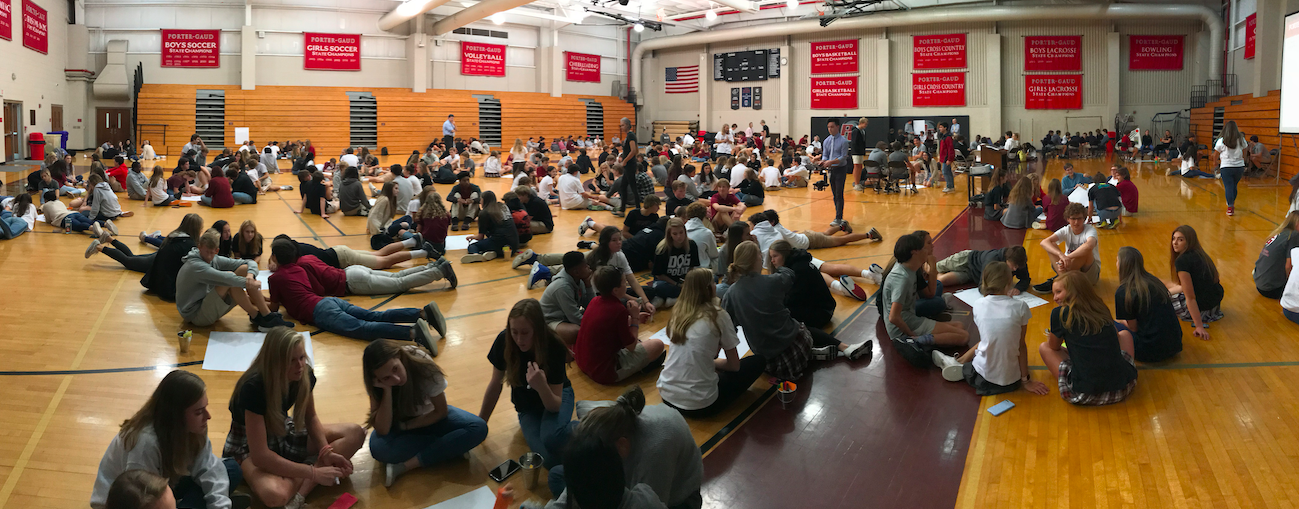Does your school have the courage to invest in the extraordinary?
 That was the thesis question posed by independent thought and practice leader, Tim Fish of McDonogh School last week at the NAIS conference. I have known Tim for more than ten years, but had never seen him present. It was so succinct, so precise, and so important, I want to summarize the key points, which, in my opinion, are those which will determine which schools survive the next two decades and which will not.
That was the thesis question posed by independent thought and practice leader, Tim Fish of McDonogh School last week at the NAIS conference. I have known Tim for more than ten years, but had never seen him present. It was so succinct, so precise, and so important, I want to summarize the key points, which, in my opinion, are those which will determine which schools survive the next two decades and which will not.
Tim showed a clip from a Malcolm Gladwell TED talk about spaghetti sauce. Gladwell cites work by Howard Moskowitz who revolutionized how consumers buy food by recognizing that one spaghetti sauce is not preferred by most customers over other sauces, but rather that consumers prefer a range of choices and are willing to pay for those choices…which is why we have something like 23 different kinds of spaghetti sauce on market shelves. As Gladwell points out, if you ask a group of people what kind of coffee they like, many say “rich, dark roast”, until they have tried other kinds…and we get Starbucks making lots of money.
The point is that we never would have had “extra chunky” spaghetti sauce in the market if the makers had never tried something different, and found out that people like extra chunky sauce more than smooth sauce. Tim asks the big question of schools:
What is your extra chunky? Do your school families know what they want, or are they has happy as they are going to be with what you offer?
Tim went on to share the findings of Ross Honeywill, who argues that in the post-recession economy, there are two worlds of consumers: traditional consumers who are looking for the best deal and New Economic Order (NEO) consumers who want to fall in love with a product. With respect to NEO’s, who have more money and are more willing to spend it when they find something they are passionate about, the question is:
What does your school do that the NEO’s will fall in love with? What movement is your family joining?
At first glance some might think these questions apply only to private schools that charge tuition, but public schools have the same fragile relationship with families who have an almost endless range of education options. They may not pay tuition, but they “invest” heavily in any system of education.
Schools that will be around in 20 years will start investing in the extraordinary NOW. They will have something very extra chunky to attract consumers who may not even know what they are looking for yet.





This was a wonderful session and so important for us to be thinking about in all of our schools.